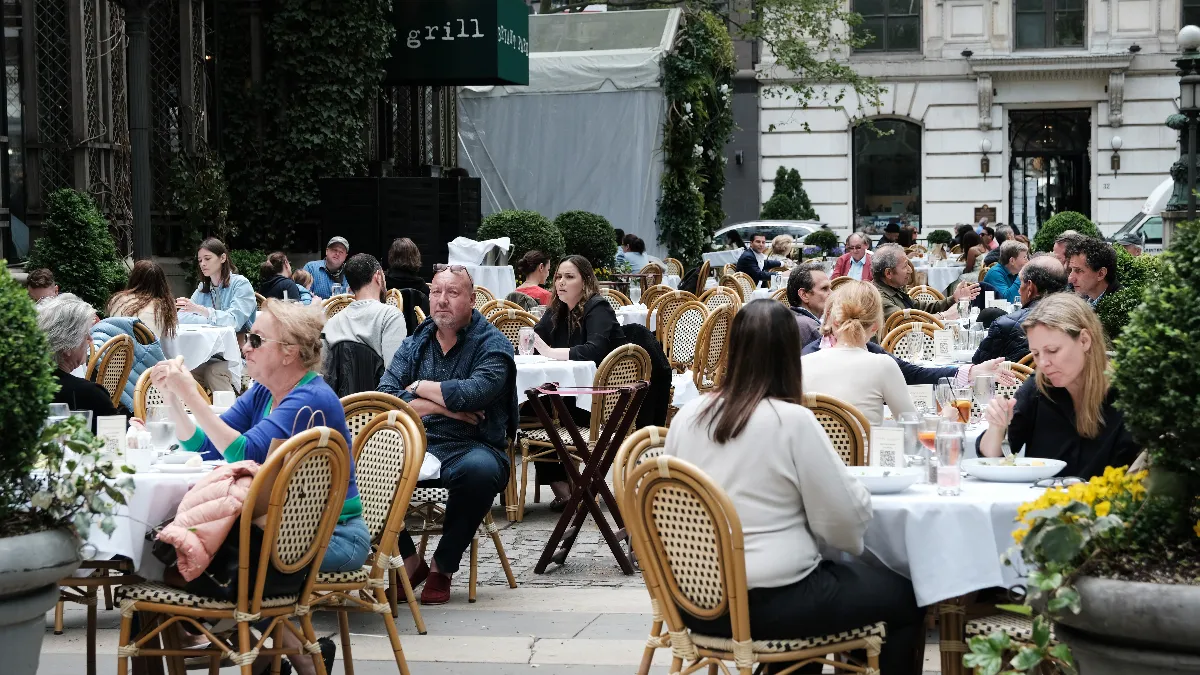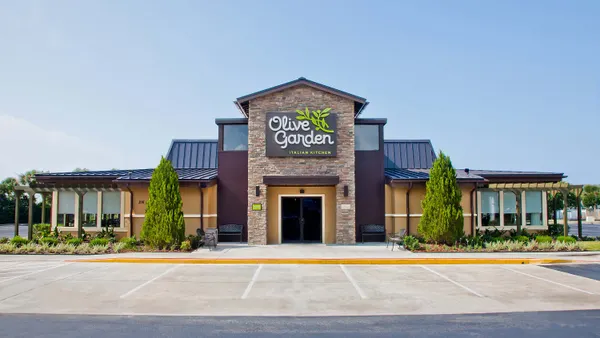Dive Brief:
- Despite heightened demand for eating out at restaurants, guest sentiment is down across the full-service restaurant category, according to Black Box Intelligence data shared during a May 19 webinar.
- Service scores fell nearly 3% in Q1 2021 compared to Q4 2020, while ambiance scores slipped 5%, the biggest decline of any category, Black Box Intelligence CEO and President Kelli Valade said during the webinar.
- This decline in guest sentiment could be particularly troublesome for restaurants trying to recoup revenues, with diner intent to return down 1.5% in Q1 2021 versus the previous quarter. Two-year comp traffic is also lackluster despite improvements since mid-February, and remains below 0%, according to Black Box Intelligence data.
Dive Insight:
Guests have been unsympathetic to challenges restaurants face and are expecting both a clean environment and an experience similar to what dining out was like pre-pandemic, Valade said.
"Even though demand is way up and staffing may be a challenge, there is a heightened awareness over cleanliness for customers simply because of the pandemic," Valade said.
Ambiance sentiments concerning cleanliness fell 9.7% compared to Q4 2020, with diners complaining over the state of tables and floors, dishware, silverware and bathrooms.
Among the contributors to the declines in service scores are speed of service and friendliness, Valade said. Speed of service scores fell 4.2%, specifically. One guest complained to-go orders were being serviced faster than people who were dining in, for example.
"People inside your restaurant are very aware that you're short-staffed and they're not very empathetic about that, unfortunately," Valade said.
Common complaints also included that there were waits, but restaurants weren't crowded because they were maintaining social distancing.
"If you have a policy now of … trying to manage crowds and it looks to the guests as something different — when they can't understand that you may be doing that, they're going to react, they're going to be frustrated with you," Valade said.
Another sticking point for guests is inconsistencies with masking policies. If a restaurant's website or a sign outside says masks are required, then staff should also comply and wear masks properly, she said. If a guest needs to be reminded of the policy and asked to mask up, staff should be kind about it, Valade said.
"What we're seeing in the comments is that the frustration is not about being asked, it's about being embarrassed or being called out," Valade said.
Operators should better communicate their new policies to guests, and if staff members or a manager share that they are understaffed, guests will want an explanation as well, Valade said. If not, these guests typically lash out at staff. For example, one customer didn't pay a tip because they were asked to leave after 90 minutes due to the restaurant's policy, according to Black Box findings. This diner behavior is exacerbating pressure on staff, as many front-of-house workers have already experienced harassment on the job since the start of the pandemic.












